Faculty and students have worked hard over the last 25 years to transform Marshall into one of the leading research universities in the nation.
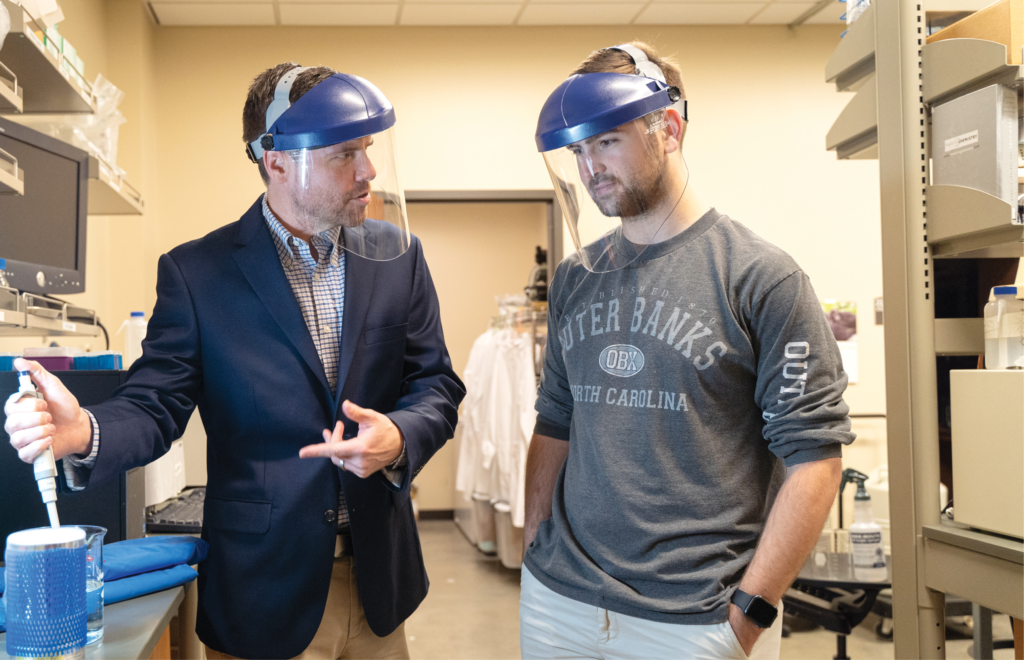 Dr. John Maher, vice president for research at Marshall, says the university’s prestigious reputation for research is a success story 25 years in the making. Having achieved Carnegie Classification R2 High Research Activity status in 2018, Marshall is now among the top 6% of research universities in the country.
Dr. John Maher, vice president for research at Marshall, says the university’s prestigious reputation for research is a success story 25 years in the making. Having achieved Carnegie Classification R2 High Research Activity status in 2018, Marshall is now among the top 6% of research universities in the country.
“If you name a direction of research, our faculty are involved in it,” Maher said. “When you look at Marshall research, it’s impactful.”
Many factors at Marshall foster research and have laid the groundwork for this success, such as the accreditation of the College of Engineering and Computer Sciences, as well as the construction of the Robert C. Byrd Biotechnology Science Center in 2006 and the Arthur Weisberg Family Applied Engineering Complex in 2015. This past fiscal year, Marshall was awarded approximately $63 million in grants for research — an all-time record for the university.
“Those are elements that have been built brick by brick by Marshall faculty, and we’ve been come a long way in the last 25 years,” Maher said.
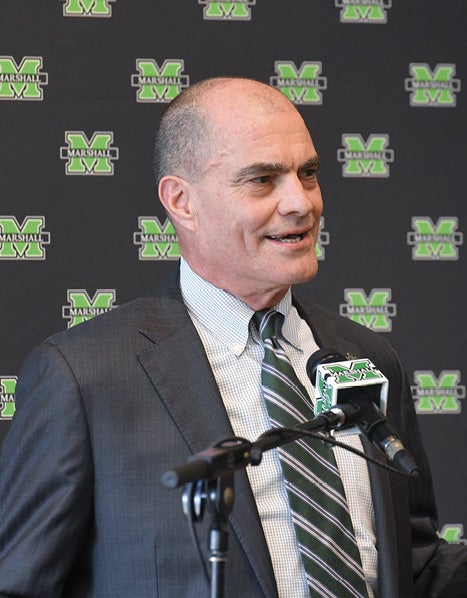 Maher said the research experience at Marshall prepares students, no matter their area of study, for the real world.
Maher said the research experience at Marshall prepares students, no matter their area of study, for the real world.
“That training builds resilience, self-confidence, and collaborative and team skills,” he explained. “We see that across the board, whether somebody’s doing an undergraduate research project in fine arts or doing an undergraduate research project in biomedical engineering.”
One focus of research at Marshall is discovering new pathways for treating obesity, spearheaded by Dr. Umapathy Sundaram, vice dean for research and chairman of the Department of Clinical and Translational Science at the Marshall University Joan C. Edwards School of Medicine.
“Obesity is an epidemic in West Virginia and central Appalachia,” said Sundaram. “The many complications of obesity, such as diabetes, hypertension, fatty liver disease, cardiovascular disease, etc., are more common in West Virginia than most any other state.”
To focus the research at Marshall in this important area, the Appalachian Center for Cellular Transport in Obesity Related Disorders (ACCORD) at Marshall University was founded several years ago. Through the Center of Biomedical Research Excellence (COBRE) program of the National Institutes of Health, Sundaram and his team were awarded a nearly $11 million grant to investigate obesity.
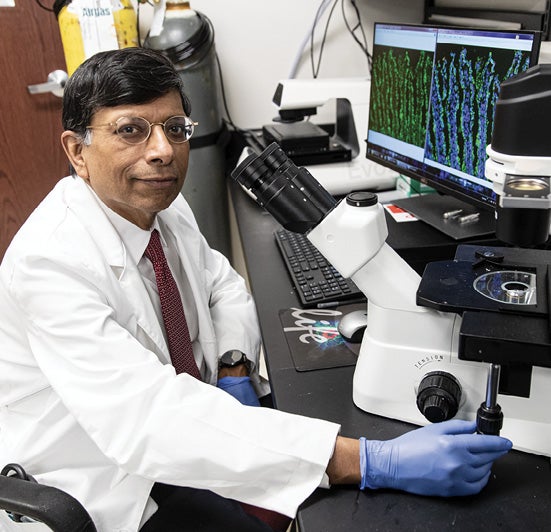 “This program will allow us to not only perform research in obesity and its complications, but also provide funding to train the next generation of biomedical researchers and establish important infrastructures to perform state-of-the-art research at Marshall,” said Sundaram, principal investigator of the grant. NIH has also awarded grants to fund other entities, including the IDeA Networks of Biomedical Research Excellence (INBRE) in partnership with West Virginia University, led by Dr. Gary Rankin, chair of the JCESOM Department of Pharmacology.
“This program will allow us to not only perform research in obesity and its complications, but also provide funding to train the next generation of biomedical researchers and establish important infrastructures to perform state-of-the-art research at Marshall,” said Sundaram, principal investigator of the grant. NIH has also awarded grants to fund other entities, including the IDeA Networks of Biomedical Research Excellence (INBRE) in partnership with West Virginia University, led by Dr. Gary Rankin, chair of the JCESOM Department of Pharmacology.
“INBRE uses the research experience at WVU and Marshall to foster student and faculty research activity at primarily undergraduate institutions in the state, and it creates a statewide network of people who are trained and going into careers in biomedical research,” Maher explained. “It has a profound impact on research competitiveness and on the lives and the careers of the students who are now leaving the undergraduate institutions to go on to graduate or medical studies.”
Sundaram, who has been at Marshall for nine years and has practiced gastroenterology at Marshall and WVU for almost 20 years, said a priority among university researchers is to “concentrate our efforts on research that is relevant to our patients.” Because many West Virginians face difficulty in traveling to receive the latest and most advanced care, the Marshall Clinical Research Center (MCRC) was established to bring advancements in treatment and medicine to the area. It supports and grants patients access to clinical trial programs and promotes clinical and translational research to provide advanced care that otherwise is not available for patients in the region.
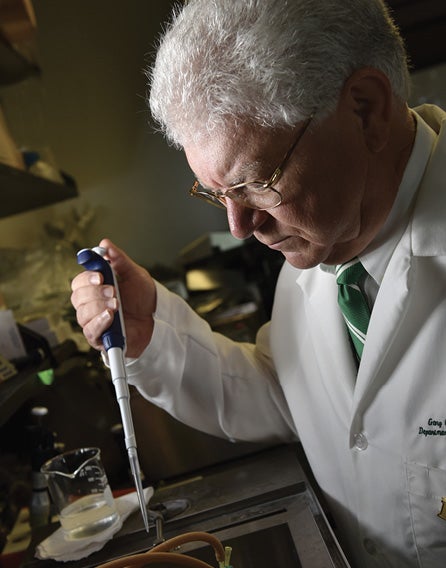 “The goal with the MCRC is to bring the latest treatment available by the government and pharmaceutical companies to our locale so patients don’t have to travel too far,” Sundaram said.
“The goal with the MCRC is to bring the latest treatment available by the government and pharmaceutical companies to our locale so patients don’t have to travel too far,” Sundaram said.
Recently, Sundaram and his team completed a clinical trial with a new medication that specifically treats patients with liver complications of obesity.
“We participated in a multicenter trial, and it certainly shows significance in terms of potentially reversing this problem,” Sundaram said.
The Department of Clinical and Translational Science has another goal: to train the next generation of researchers. Dr. Sundaram and his fellow researchers work with students to study the landscape of health care disparities in West Virginia and central Appalachia. They then focus on solving those inequities through research. Sundaram said getting medical and graduate students involved in research that is important for the state of West Virginia adds to the level of care they provide. The goal is to get those students interested in the health care issues facing West Virginia so they can start to prepare mindful paths to solve those problems.
Sundaram also noted that West Virginia and central Appalachia are home to a large number of veterans, and the Huntington VA Medical Center has the largest research facility in the region.
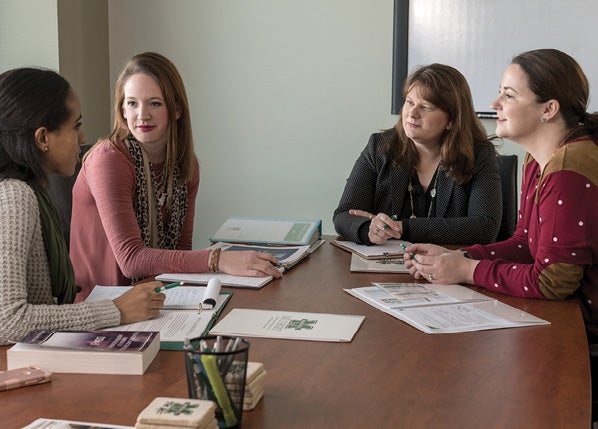 “In the last several years we have made a concerted effort to collaboratively enhance research between the VA and Marshall,” said Sundaram, who takes care of patients as well as conducts research at the VA.
“In the last several years we have made a concerted effort to collaboratively enhance research between the VA and Marshall,” said Sundaram, who takes care of patients as well as conducts research at the VA.
Reflecting the success of this collaboration between the VA and Marshall, Sundaram was recently awarded the prestigious Senior Clinician Scientist Investigator VA Merit Award by the Department of Veterans Affairs to study inflammatory bowel disease, a common condition in veterans as well as West Virginians.
The Marshall University College of Science has a large research concentration in water resources and environmental science. Researchers in the College of Science are partnering with the U.S. Army to understand how army bases are impacting wildlife — and how to minimize that impact. Members of the college are also studying river systems, trying to understand how to control, detect and prevent harmful algae blooms.
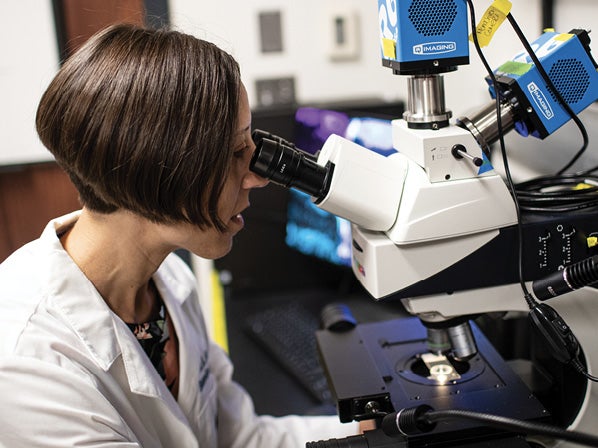 The university’s Forensic Science Graduate Program, one of the foremost forensics master’s degree programs in the country, is conducting cutting-edge research in DNA analysis.
The university’s Forensic Science Graduate Program, one of the foremost forensics master’s degree programs in the country, is conducting cutting-edge research in DNA analysis.
“There’s a real advancement taking place in forensics for law enforcement, and our forensic center is at the forefront,” Maher said.
Marshall has been awarded grants focusing on addiction and recovery through the Center for Recovery Excellence, headed by Dr. Lynn O’Connell, associate director of Addiction Sciences, and Amy Saunders, managing director of the center. They apply state-of-the-art techniques to provide services to people in recovery to maximize their chances of finding success and re-entering the workforce. This involves partnerships between state and federal organizations such as the Substance Abuse and Mental Health Services Administration, Marshall’s Psychology Department and the Department of Family Medicine at the Joan C. Edwards School of Medicine.
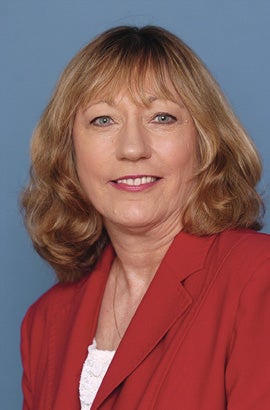 “We work a lot on the most profound problems that address the state, and we hope that we’re having an impact,” Maher said. “These folks are working to make this state a better place, either from an economic development perspective or from a health perspective.”
“We work a lot on the most profound problems that address the state, and we hope that we’re having an impact,” Maher said. “These folks are working to make this state a better place, either from an economic development perspective or from a health perspective.”
Under Marshall President Brad D. Smith’s leadership, the university is reorganizing and even more sharply focusing its research strategy.
“We’re also going to emphasize areas of economic development where we have real strengths to ensure we are having the maximum impact possible on the region’s growth,” Maher said.
Smith, who continues the tradition of encouraging research, said the growth of the research enterprise at the university has been nothing short of incredible the past few decades.
“Under the direction of my predecessors, and with the commitment of our dynamic faculty, staff and students, Marshall has transformed into a Carnegie Classification R2 institution, a designation that gives us a standing in the research world,” Smith said. 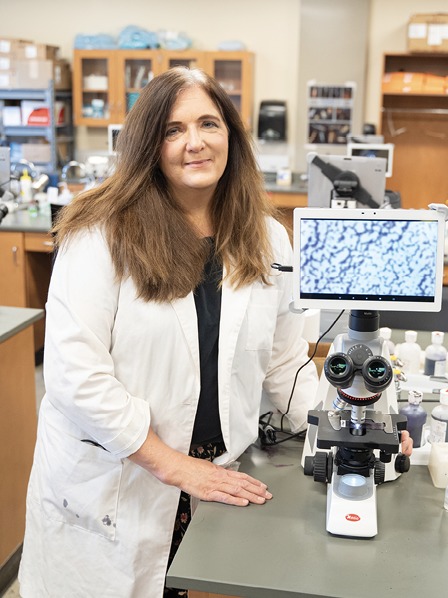 “Research is a two-pronged operation in higher education: it drives novel concepts and prepares the next generation of investigators.”
“Research is a two-pronged operation in higher education: it drives novel concepts and prepares the next generation of investigators.”
Research is a priority at Marshall, Maher said, because it’s fundamentally important to science while also having a positive economic impact on society.
“If people were not doing research, we wouldn’t have transistors, iPhones or cholesterol drugs,” Maher said. “All of that comes from people asking basic questions and training students to be curious. The economic impact of the research itself is that we hire people and we conduct research, and it creates a vibrant university community.
“The most gratifying aspect is that the students and faculty are working hard not only to come up with innovative solutions, but to make them a reality as well,” he continued. “Everybody in the community should recognize all the good work being done at Marshall and take pride in its commitment to research.”
—————-
About the author: Amanda Larch is a freelance writer living in Hurricane, West Virginia.
Photos (from top):
Dr. Derrick Kolling explains a chemical reaction to a student. Kolling is a professor and the chair of the Department of Chemistry.
Dr. John Maher is executive director of the Marshall University Research Corporation and vice president for research at Marshall.
Dr. Umapathy Sundaram has practiced gastroenterology at Marshall and WVU for almost 20 years and is discovering new pathways for treating obesity.
Dr. Gary Rankin is the principal investigator of the NIH-funded West Virginia IDeA Network of Biomedical Research Excellence.
Dr. Lynn O’Connell and Amy Saunders (center) are both involved in behavioral and public health research and program development.
Dr. Maria Serrat is associate professor in the Department of Biomedical Sciences where she heads research on childhood obesity.
Dr. Barbara Becker-Cottrill is senior research associate at the WV Autism Training Center at Marshall University.
Professor of Biological Sciences Dr. Wendy Trzyna focuses her investigation on cellular activity.